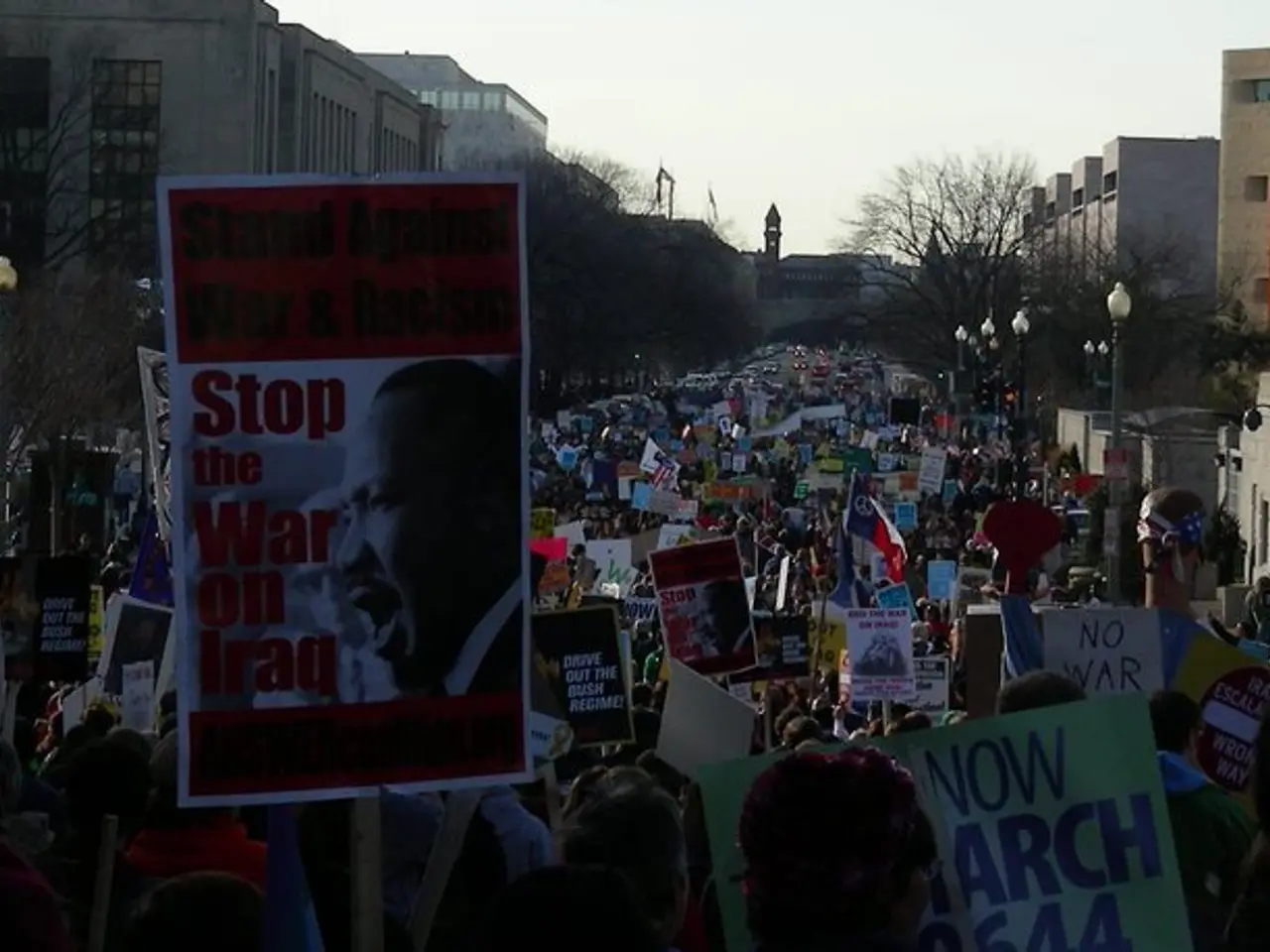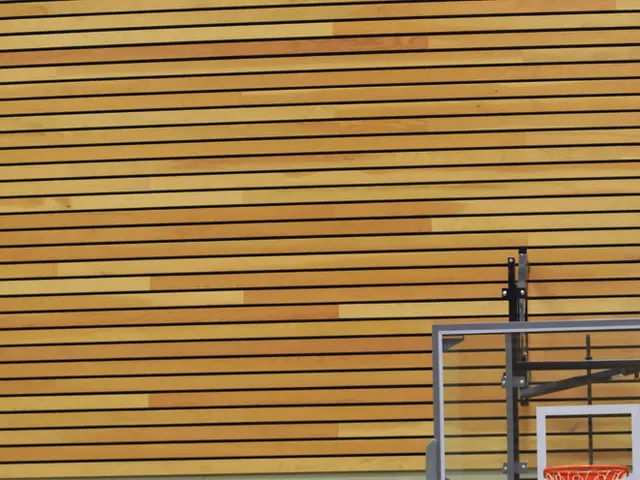Belarus Protests: Assessing the Alterations Over the Past 5 Years
In the summer of 2020, Belarus witnessed the largest protests in its history, sparked by widespread rejection of the fraudulent presidential election results[1][2][3]. The protests, which involved diverse groups such as women, students, workers, actors, athletes, diplomats, doctors, teachers, and more, marked a turning point in the country's political landscape.
Key impacts on the current political landscape are:
- Continued and intensified repression: Over 65,000 people have been jailed, thousands have fled the country, and widespread human rights abuses—including torture—have been extensively documented with no accountability for perpetrators[1][2]. The regime’s crackdown has extended to independent media, which faces severe repression, making Belarus one of the most dangerous countries in Europe for journalists[4].
- Opposition in exile: The main opposition figures, including Sviatlana Tsikhanouskaya, are based abroad. They continue to campaign for democratic change and seek international support. However, with Lukashenko increasingly dependent on Russian backing, especially in the context of the Ukraine war, the prospects for peaceful political transition appear bleak without external pressure and assistance[1][5].
- Belarus as a "nation of hostages": The regime has consolidated a system built on fear and repression, holding the country hostage to dictatorship and Russian influence[2]. The political environment remains highly constrained, with no sign of liberalization or accountability for 2020 abuses.
Lukashenko, who has held power for over a quarter of a century, has gained another five-year term and shows no signs of stepping down until at least 2030. Key opposition figures, such as Sviatlana Tsikhanouskaya and Maria Kolesnikova, are serving prison sentences, while others, like Sviatlana's husband, Siarhei Tsikhanouski, have been released[6].
Ales Bialiatski, a human rights activist and Nobel Prize laureate, is currently serving his sentence in a penal colony in Belarus, with his health deteriorating, particularly his eyesight and legs[7]. Similarly, Viktor Babaryka, a banker and philanthropist, is serving a 14-year prison sentence[8].
Five years on, digital traces of the mass protests have vanished, with media outlets closed or operating from abroad, their websites blocked by the Belarusian authorities. Since the beginning of 2022, more than 1,700 people have been arrested on administrative, criminal, and politically motivated charges[9].
The people of Belarus remain angry not only about the fraudulent election and the subsequent repression but also about the authorities' lack of steps to protect the population against the COVID-19 pandemic and the arrest of opposition presidential candidates and thousands of citizens. The situation remains fragile, with external support considered crucial for any democratic progress[1][2][5].
[1] https://www.hrw.org/news/2021/08/09/belarus-five-years-on-protests-and-repression [2] https://www.amnesty.org/en/latest/news/2021/08/belarus-five-years-since-the-2020-protests-authorities-continue-to-suppress-dissent/ [3] https://www.bbc.com/news/world-europe-56340880 [4] https://rsf.org/en/belarus [5] https://www.reuters.com/world/europe/belarus-opposition-leaders-seek-international-support-2021-08-09/ [6] https://www.reuters.com/world/europe/belarus-opposition-leader-siarhei-tsikhanouski-released-jail-2022-06-09/ [7] https://www.hrw.org/news/2022/03/30/belarus-authorities-must-release-nobel-laureate-ales-bialiatski [8] https://www.bbc.com/news/world-europe-56340880 [9] https://www.hrw.org/news/2022/02/09/belarus-authorities-must-stop-arbitrary-detentions
- The largest protests in Belarus' history, triggered by the fraudulent presidential election results in 2020, have significantly altered the country's political landscape, leading to widespread human rights abuses and repression.
- Journalists in Belarus face severe repression, making it one of the most dangerous countries in Europe for media workers.
- The main opposition figures, including Sviatlana Tsikhanouskaya, are now based abroad and continue to advocate for democratic change, seeking international support.
- Lukashenko, despite his quarter-century reign, has demonstrated no inclination to relinquish power, with no indication of stepping down before 2030.
- The People's discontent in Belarus exceeds the fraudulent election and subsequent repression, now including the authorities' failure to protect the population against the COVID-19 pandemic and the arrest of opposition candidates and thousands of citizens.
- Digital traces of the mass protests in the summer of 2020 have been largely erased, with media outlets either closed or operating from abroad, their websites blocked by Belarusian authorities.





